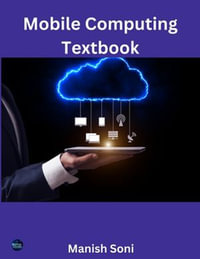
eTEXT
Natural Language Analytics with Generative Large-Language Models
A Practical Approach with Ollama and Open-Source LLMs
By: Francisco S. Marcondes, Adelino Gala, Renata Magalhães, Fernando Perez de Britto, Paulo Novais
eText | 13 February 2025
At a Glance
eText
$84.99
or
Instant online reading in your Booktopia eTextbook Library *
Read online on
Desktop
Tablet
Mobile
Not downloadable to your eReader or an app
Why choose an eTextbook?
Instant Access *
Purchase and read your book immediately
Read Aloud
Listen and follow along as Bookshelf reads to you
Study Tools
Built-in study tools like highlights and more
* eTextbooks are not downloadable to your eReader or an app and can be accessed via web browsers only. You must be connected to the internet and have no technical issues with your device or browser that could prevent the eTextbook from operating.
ISBN: 9783031766312
ISBN-10: 3031766318
Series: SpringerBriefs in Computer Science
Published: 13th February 2025
Format: ePUB
Language: English
Publisher: Springer Nature Switzerland
You Can Find This eBook In
This product is categorised by
- Non-FictionComputing & I.T.Computer ScienceAudio Processing
- Non-FictionComputing & I.T.Computer ScienceArtificial IntelligenceNatural Language & Machine Translation
- Non-FictionComputing & I.T.Databases
- Non-FictionComputing & I.T.Business ApplicationsEnterprise Software
- Non-FictionLanguage & LinguisticsLinguistics
- Non-FictionMathematicsProbability & Statistics
- Non-FictionBusiness & ManagementBusiness Mathematics & Systems
- Non-FictionComputing & I.T.Computer ScienceArtificial Intelligence























